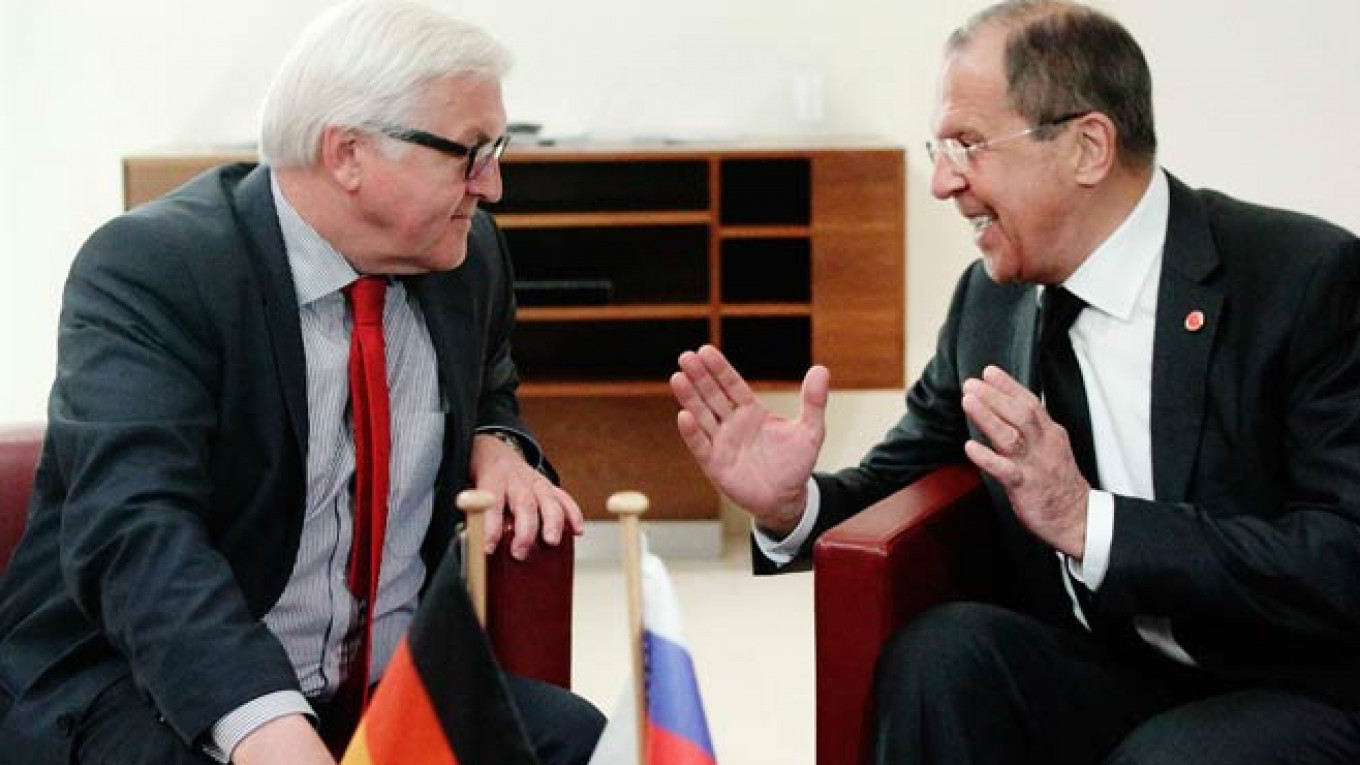Russian Foreign Minister Sergei Lavrov said Tuesday it would be "unusual" to hold a presidential election in Ukraine while the Army was being deployed against Ukrainians.
Lavrov's comments, after a meeting of the Council of Europe human rights organization in Vienna, suggested Moscow could be preparing a reason to question the legitimacy of the May 25 election if it is unhappy with the outcome.
"Holding elections at a time when the Army is deployed against part of the population is quite unusual," he told a news conference in response to a question about whether Moscow would recognize the vote. "We will see how this process ends."
Lavrov said Ukraine should agree a new constitution to define presidential powers before people cast their ballots.
Russia annexed the Crimea region from Ukraine in March and does not recognize the government that took power in February after Ukraine's pro-Moscow president was ousted.
The West accuses Moscow of trying to destabilize its fellow former Soviet republic by fomenting separatist unrest in the Russian-speaking east, which could also be used by Russia as possible grounds to withhold recognition of the election.
Russia denies the accusations and says the West and the new, pro-Europe authorities in Kiev have aggravated the crisis.
Asked about a German proposal to hold a second international meeting on Ukraine, Lavrov said the agreements reached during the first round of talks in Geneva had still not been implemented.
"Meeting in the same format, when the opposition to the current Ukrainian regime will be absent at the negotiating table, would hardly add [anything]," he said.
"One could possibly do it but we would be going round in circles, again saying that one needs to carry out what we had agreed on. And it is the Ukrainians who should deliver, both the regime and those opposing it."
A Message from The Moscow Times:
Dear readers,
We are facing unprecedented challenges. Russia's Prosecutor General's Office has designated The Moscow Times as an "undesirable" organization, criminalizing our work and putting our staff at risk of prosecution. This follows our earlier unjust labeling as a "foreign agent."
These actions are direct attempts to silence independent journalism in Russia. The authorities claim our work "discredits the decisions of the Russian leadership." We see things differently: we strive to provide accurate, unbiased reporting on Russia.
We, the journalists of The Moscow Times, refuse to be silenced. But to continue our work, we need your help.
Your support, no matter how small, makes a world of difference. If you can, please support us monthly starting from just $2. It's quick to set up, and every contribution makes a significant impact.
By supporting The Moscow Times, you're defending open, independent journalism in the face of repression. Thank you for standing with us.
Remind me later.






